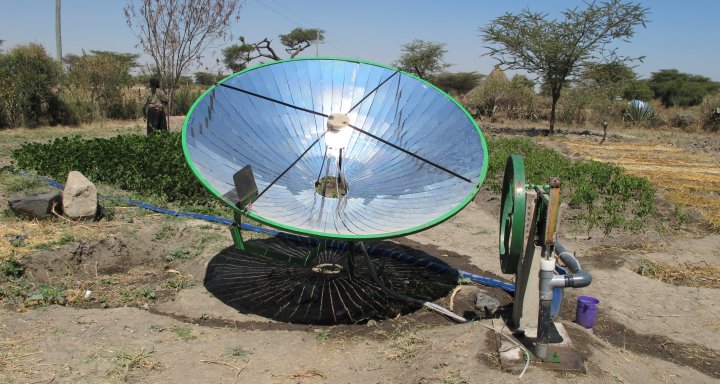Background
Today in sub-Saharan African, most small-scale farmers who need irrigation source their water through labour intensive methods such as buckets or manual pumps, or with pumps driven by expensive fossil fuels.
Based on the needs of smallholder farmers, iDE, a non-profit organisation helping poor rural households, and the PRACTICA foundation designed a prototype low-cost solar-steam pump suitable for micro-irrigation. In field testing, this Sunflower Pump showed consistent output exceeding the design goal of lifting 2,000 litres/day from a depth of 15 meters.
To facilitate its widespread adoption, it was necessary to overcome farmer scepticism about RE based solutions, demonstrate the solar-steam irrigation pump in real conditions, and develop an efficient and sustainable supply chain for the technology. This project aimed to facilitate the production, distribution and purchase of the solar-steam pump among small-scale farmers in Ethiopia, enabling them to access irrigation water in a low-cost, labour-saving and sustainable manner. It was envisioned to be the first phase of a larger initiative to create a market for low-cost RE and EE technologies in Ethiopia, and eventually throughout Africa.
